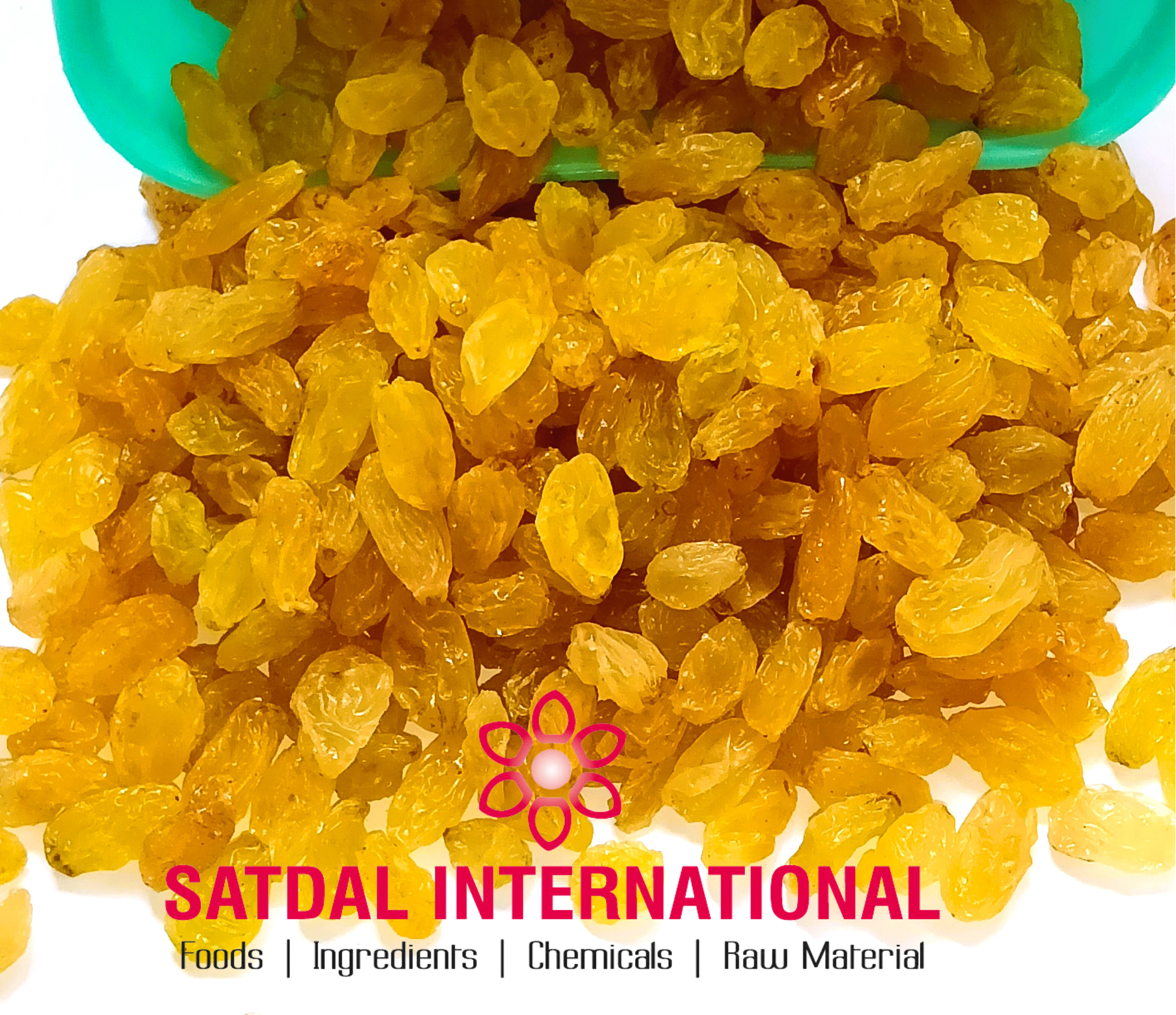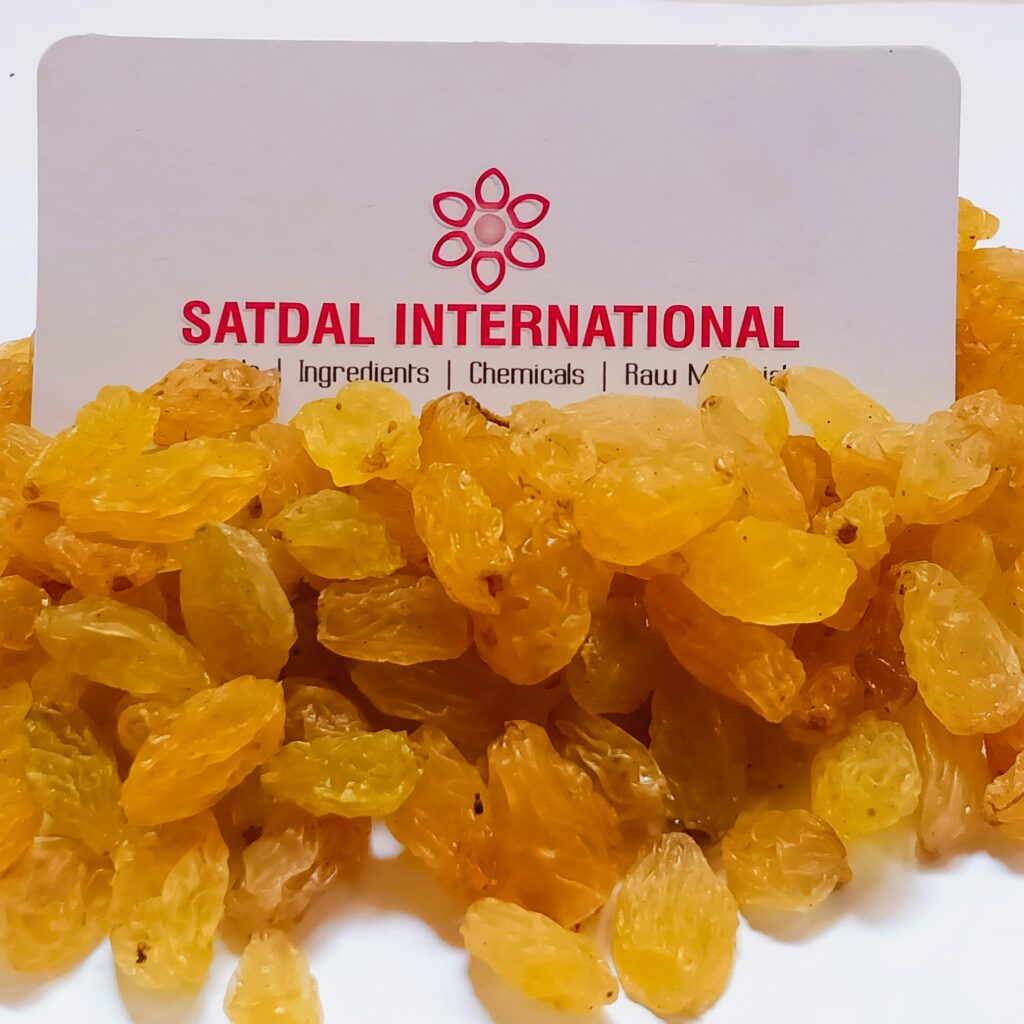India has long been known for its agricultural diversity, but there’s one lesser-known treasure steadily capturing the global market—golden raisins. These small, sweet, and sun-dried grapes are not just a treat; they represent an emerging opportunity in international trade. India’s foray into exporting golden raisins is positioning it as a significant player in the global market, especially for buyers looking for premium quality. This article will explore India’s rise as a golden raisins exporter, the benefits of these golden gems, and what makes them stand out from other raisin varieties.
Table of Contents
ToggleIntroduction to Golden Raisins
Golden raisins, also known as yellow raisins or golden sultanas, are dried grapes that have been specially processed to retain their light color. Unlike traditional dark raisins, which are sun-dried, golden raisins are dried in controlled environments and often treated with sulfur dioxide to preserve their bright hue. This variety of raisin is known for its sweet, tangy flavor and juicy texture, making it a popular choice for snacking, baking, and cooking
Why India? The Rising Source of Golden Raisins
When you think of golden raisins, countries like Turkey or the United States might come to mind. But in recent years, India has emerged as a formidable competitor in the global market. So, why India? The answer lies in the country’s unique combination of favorable climate, cost-effective production, and evolving agricultural techniques. With states like Maharashtra and Karnataka leading in grape cultivation, India has found itself in an ideal position to produce and export high-quality golden raisins.
Climate and Soil Conditions
India’s warm climate and well-drained soil provide the perfect environment for grape cultivation. The conditions mimic some of the world’s best grape-growing regions, allowing Indian farmers to grow grapes with a unique flavor profile that translates into delicious golden raisins.
Cost Efficiency
Compared to more established raisin exporters, India offers a cost advantage due to lower labor and land costs. This affordability makes Indian golden sultanas highly competitive in the international market.
What Makes Golden Raisins Different from Other Raisins?

Golden raisins differ from regular raisins not just in color but also in taste, texture, and nutritional profile. Unlike sun-dried raisins, which turn brown due to oxidation, golden raisins are dried in dehydrators at controlled temperatures, keeping their light color intact. Here’s a closer look at how they stand apart:
Color: Golden raisins are light in color, while regular raisins are typically dark brown.
Flavor: Golden raisins tend to be sweeter and less acidic than their darker counterparts.
Texture: They are plumper and juicier because of the controlled drying process.
Nutritional Value: Golden raisins are higher in certain antioxidants due to their drying method, which helps retain more nutrients.
The Golden Raisin Production Process in India
The journey of a golden raisin begins with grape cultivation. Farmers carefully select grape varieties that are best suited for raisin production, ensuring a consistent size, color, and sweetness. Here’s an overview of the steps involved:
- Harvesting: Grapes are harvested at peak ripeness to ensure optimal sugar levels.
- Pre-treatment: The harvested grapes are washed and sometimes treated with a solution to help retain their light color.
- Drying: Instead of sun-drying, the grapes are dried using dehydrators, which control temperature and humidity.
- Sorting and Grading: Raisins are sorted based on size, color, and quality.
- Packaging: The raisins are packed in moisture-resistant packaging to preserve freshness during transportation.
Health Benefits of Golden Raisins
Golden raisins aren’t just tasty; they are also packed with nutrients that provide multiple health benefits:
Rich in Fiber: Helps promote digestive health.
High in Iron: Aids in the production of red blood cells, combating anemia.
Antioxidant Properties: Helps protect cells from damage.
Good Source of Potassium: Helps regulate blood pressure.
Natural Energy Booster: The natural sugars in golden raisins provide an immediate energy boost, making them a great snack for athletes.
How Indian Golden Raisins Compare to Other Sources
Compared to other raisin-exporting countries, India’s golden raisins offer some unique advantages. Indian raisins are known for their distinct sweetness and plump texture, which are a result of the region’s specific growing conditions. Additionally, the cost efficiency of production in India translates to more competitive pricing in the global market, providing buyers with a high-quality product at a reasonable cost.
Major Export Markets for Indian Golden Raisins
India exports raisins to various countries, (Year 2023-24)
Country | Quantity (MT) |
Morocco | 9,850 |
Russia | 4,750 |
Romania | 5,015 |
Saudi Arabia | 3,438 |
Vietnam | 2,512 |
Sri Lanka | 2,291 |
Indonesia | 1,565 |
Malaysia | 1,351 |
UAE | 943 |
Poland | 1,556 |
Source: Agriexchange
Quality Standards and Certifications in India
To ensure that golden raisins exported from India meet international standards, Indian producers adhere to strict quality control measures. Many suppliers hold certifications such as ISO, HACCP, and FSSAI, which guarantee the safety and quality of the raisins. Compliance with these standards is essential for entering and succeeding in various markets.
Packaging and Shipping Considerations
Proper packaging is crucial for maintaining the quality of golden raisins during transportation. Exporters often use moisture-proof and air-tight packaging to prevent contamination and spoilage. Ensuring timely and efficient shipping is also a key factor in meeting the expectations of international buyers.
The Future of Golden Raisins Export from India
India’s position as a golden raisins exporter is rapidly strengthening. The country is not only expanding its market share but also innovating with organic and specialty raisin varieties to cater to health-conscious consumers. With government support and a growing network of suppliers, India’s potential as a leading exporter is only increasing.
Sourcing Quality Golden Raisins from India
For those looking to import golden sultanas from India, here are a few tips to ensure a smooth buying process:
- Check Certifications: Make sure the supplier has the necessary certifications.
- Request Samples: Always ask for samples to assess quality before making large orders.
- Verify Shipping Details: Confirm that the supplier can handle your shipping requirements.
- Check Reliable Sourcing Agent : Satdal International is leading sourcing agent and exporter of Raisin from India. Provide more information about Golden Raisin buying process from verified producers only.
Conclusion
The world is starting to recognize India as a new and reliable source for **golden raisins**, a development that marks a significant shift in the global dried fruit market. With its competitive pricing, favorable growing conditions, and rising quality standards, India is quickly becoming a go-to destination for these sweet, golden treats. As the export market grows, so too does the potential for Indian farmers and exporters to shine on the international stage.
FAQ's
- What makes golden raisins different from regular raisins?
Ans: Golden raisins are lighter in color, sweeter, and juicier than regular raisins, which are typically sun-dried and dark brown.
- Why is India emerging as a major exporter of golden raisins?
Ans: India’s favorable climate, cost-effective production, and government support are making it an attractive source for high-quality golden raisins.
- Are there any health benefits to eating golden raisins?
Ans: Yes, golden raisins are rich in fiber, iron, potassium, and antioxidants, which offer various health benefits.
- What countries import golden raisins from India?
Ans: Major importers include countries in the Middle East, Europe, the United States, and Southeast Asia.
- How can buyers ensure they are getting quality golden raisins from India?
Ans: Buyers should look for certifications, request samples, and verify packaging and shipping arrangements with the supplier.

